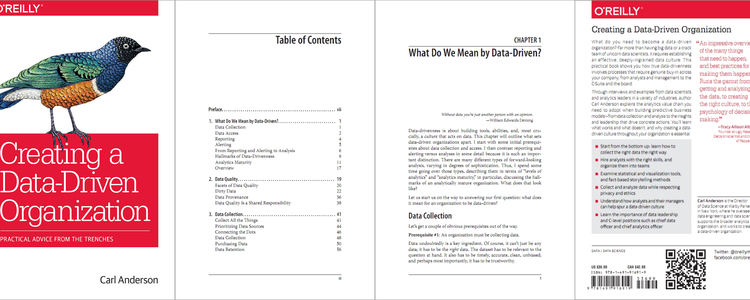1. Recognize bias → Create better algorithmsCan we humans better recognize our biases before we turn the machines loose, fully automating them? Here’s a sample of recent caveats about decision-making fails: While improving some lives, we’re making others worse. Yikes. From HBR, Hiring algorithms are not neutral. If you set up your resume-screening algorithm to […]
1. Long view → Better financial performance.A McKinsey Global Institute team sought hard evidence supporting their observation that “Companies deliver superior results when executives manage for long-term value creation,” resisting pressure to focus on quarterly earnings (think Amazon or Unilever). So MGI developed the corporate horizon index, or CHI, to compare performance by firms exhibiting […]
1. It’s tempting to think there’s a hierarchy for data: That evidence from high-quality experiments is on top at Level 1, and other research findings follow thereafter. But even in healthcare – the gold standard for the “gold standard” – it’s not that simple, says NICE in The NICE Way: Lessons for Social Policy and […]
There’s plenty of advice about designing presentations. But little of it prepares you for delivering complex evidence to senior-level decision-makers. This should help. How might your evidence help someone understand the steps required to reach an important goal? 1. Put together lean evidence, embracing lean management concepts. As explained by the Lean Enterprise Institute, “The […]
Source: Wikipedia. Anscombe’s quartet. Presenting to decision makers? Always remember it’s not a data story you’re telling, it’s a value story. First, ask yourself: What is the message? Why is this valuable and meaningful to your audience? Where did the data come from, and why are your conclusions believable? Then follow these 5 tips to […]
1. Lori C. Bieda of SAS is spot on, describing how analytics professionals can grow into roles as trusted advisors for senior executives. In The Translation Layer: The Role of Analytic Talent, she explains that “Analytics teams… need to evolve from data providers into insight integrators.” Lots of detailed observations and recommendations in this white […]
1. Evidence → Social RCTs → Transformational change More progress toward evidence-based social programs. The Laura and John Arnold foundation expanded its funding of low-cost randomized controlled trials. @LJA_Foundation, an advocate for evidence-based, multidisciplinary approaches, has committed $100,000+ for all RCT proposals satisfying its RFP criteria and earning a high rating from its expert review […]
To be inspired, your audience needs to see how findings are reliable and relevant. Part 1 talked about creating practical checklists to ensure data-driven research is reproducible. This post describes how to deliver results that resonate with your audience. It’s nice when people review analytical findings, think “Hmmm, interesting,” and add the link to bitly. […]
1. Great stuff on data-driven decision making in a new O’Reilly book by Carl Anderson (@LeapingLlamas), Creating the Data-Driven Organization. Very impressive overview of the many things that need to happen, and best practices for making them happen. Runs the gamut from getting & analyzing the data, to creating the right culture, to the psychology […]
This week we examine how executives can more fully grasp complex evidence/analysis affecting their outcomes – and how analytics professionals can better communicate these findings to executives. Better performance and more trust are the payoffs. 1. Show how A → B. Our new guide to Promoting Evidence-Based Insights explains how to engage stakeholders with […]









